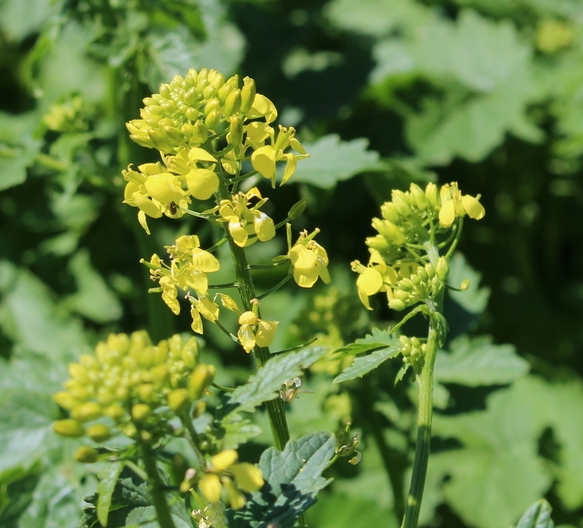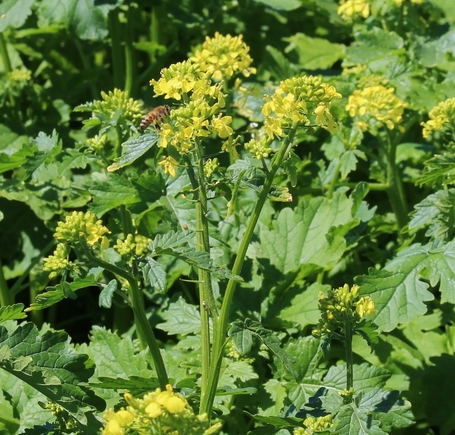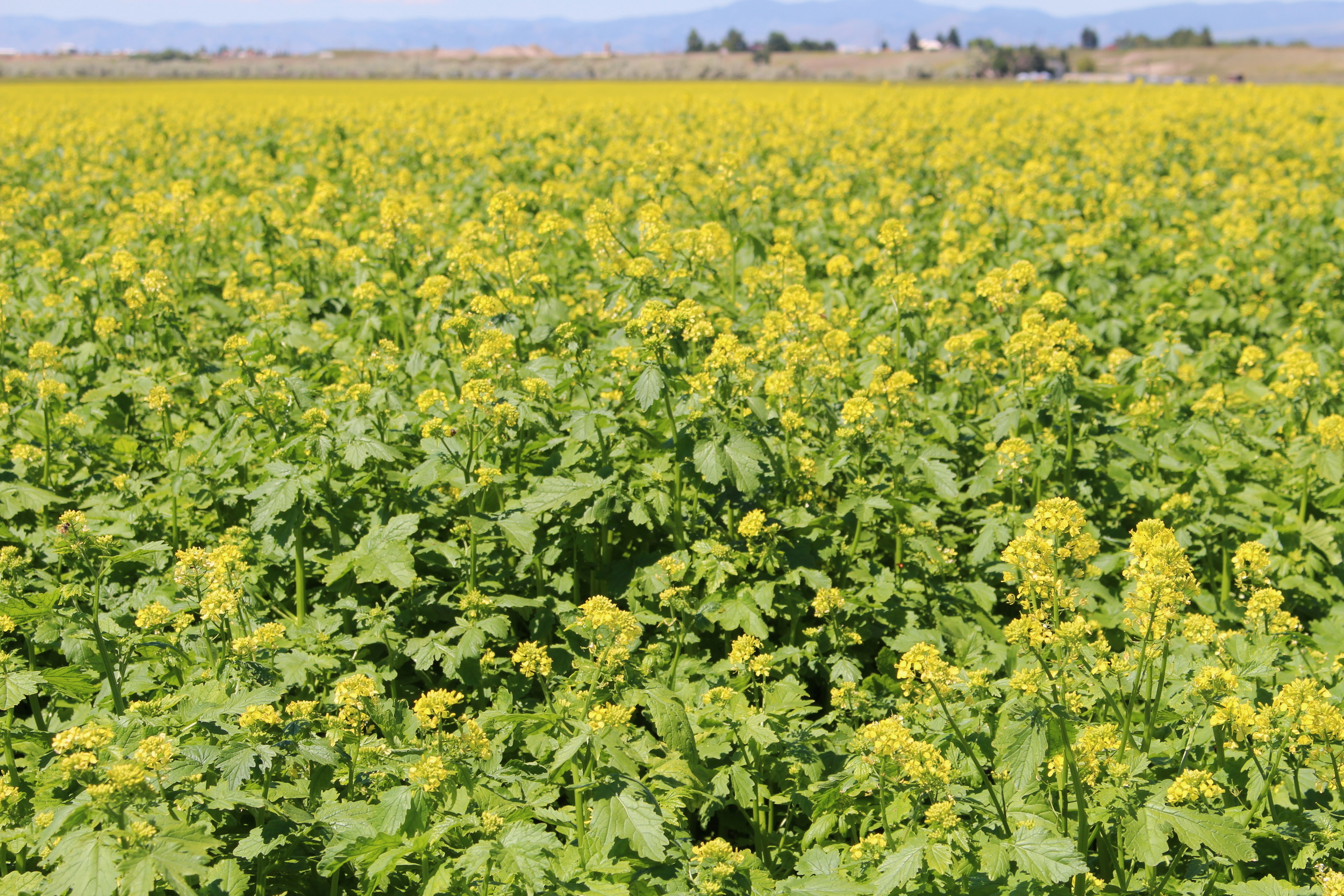Sinapis alba (White mustard)
Cool season, annual brassica traditionally grown for its spicy seeds. Establishes quickly on a wide variety of soil types; not suited to wet soils. Some drought tolerance, but extreme heat during pollination may reduce seed production. Frost sensitive and winterkills easily. Use in commercial crop rotations and in home gardens as a green manure with chemical properties that naturally fumigate soil pests such as nematodes and fungal pathogens. Wait at least four weeks after plow-down before planting the next crop. Varieties listed below. Also see Mustard Biofumigant Blend.
DISTRIBUTION / ADAPTATION
INFORMATION & ATTRIBUTES
Family: Brassicaceae
Duration: Annual
Growth Habit: Forb/herb
Native Status: Introduced
Growth Form:
Mature Height: 36-60 in.
Bloom Color: Yellow
Bloom Period: dependent on planting date
Annual Precipitation: in.
Drought Tolerance:
Shade Tolerance:
Nitrogen fixation: None
Bloat: Non-bloat
SOIL ADAPTATION
Coarse Texture:
Medium Texture:
Fine Texture:
Salinity Tolerance:
CaCO3 Tolerance:
pH Range:
SEEDING NOTES
Seeds per Pound:
Seeding Rate: 7 lbs/acre
Season: Spring/Fall
Days to Germination: 3-5
VARIETIES
Martigena - Developed as a natural biofumigant for suppressing nematodes and common root rot in rotational crops such as potatoes and sugar beets. Also shown to substantially reduce weeds in the subsequent crop year. Biofumigation effectiveness is improved when fields are planted in a 1:1 mix with Chinese mustard (Brassica juncea).
Also see Mustard Biofumigant Blend.




